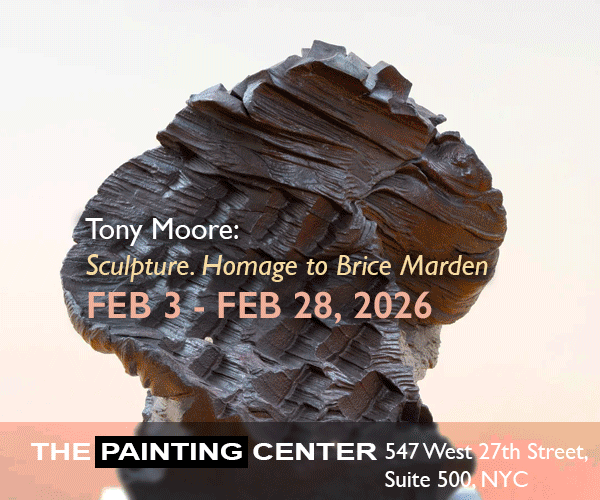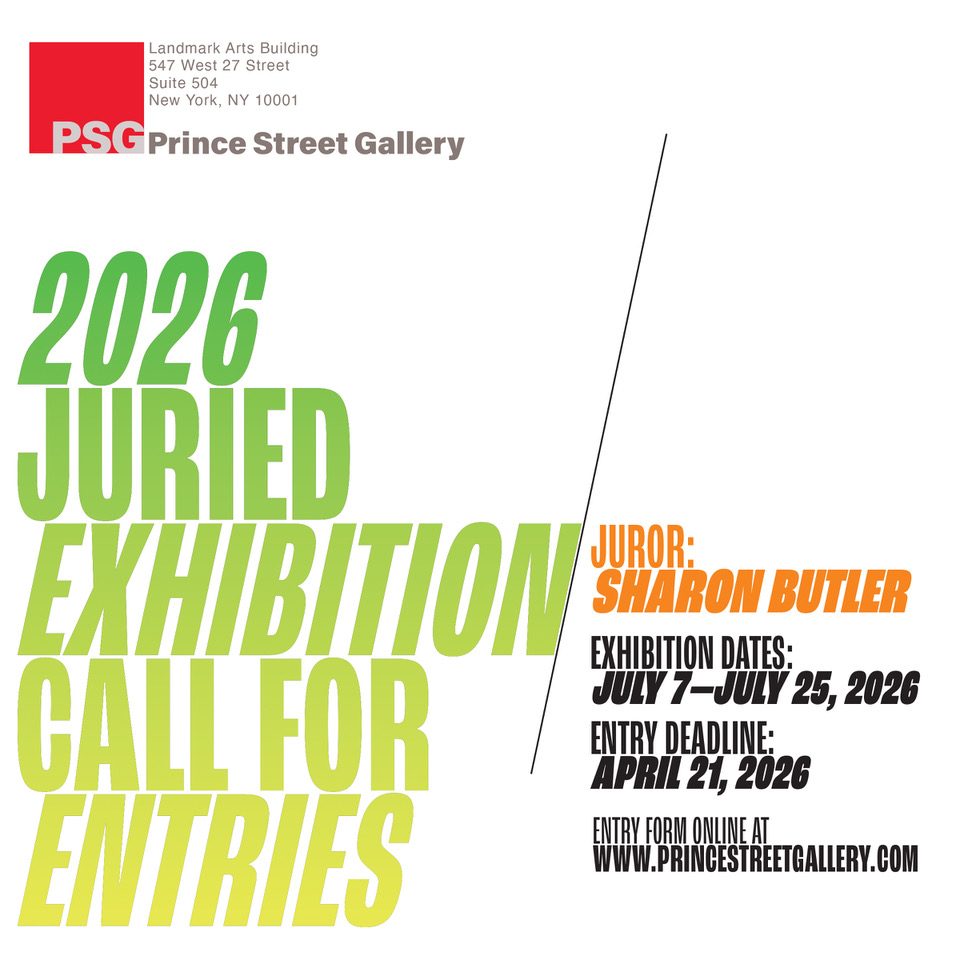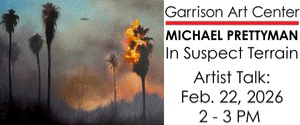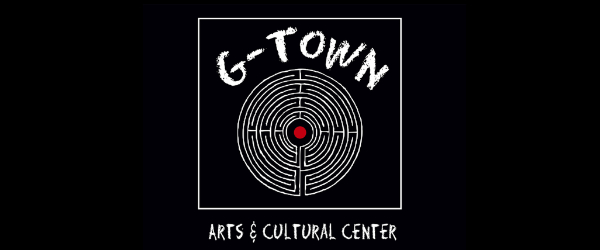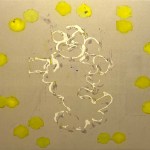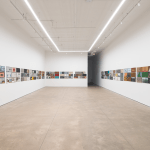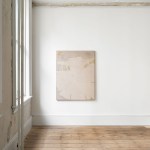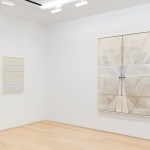
Contributed by Julia Bland / Odili Donald Odita’s abstract paintings in “Burning Cross,” at Jack Shainman Gallery, are bright and rhythmic, drawing from European and American modernists as well as textiles from Nigeria, his country of birth. Works like Represent and Opus, X complicate geometric patterning with subtle shifts and contradictions, continually setting and thwarting the viewer’s expectations. This device recalls a key historical motivation for liberating color and form from the task of pictorial representation: the pursuit of a deeper truth underlying the observable environment. Odita’s abstractions embrace this notion and at the same time complicate it by infusing “universal” imagery with individual perception, cultural specificity, and political context. Through repetition and disruption, he dissolves subjective assumptions, conjuring an underlying structure that warps and vanishes as though it were just under the surface of turbulent waters. Flawed perception obscures objective logic, evoking a layered distance, both dissonant and hypnotic.

In many works, the wood veneer surface dashes and swirls under painted geometric motifs. The contrasting imagery appears to animate interlocking pieces of a night sky, swelling in dark wonder. Surface patterns and pictorial space open and close in contradictory directions. This optical doubling seems to reflect the views on abstract art and utopian thinking Odita lays out in his statement for the exhibition. Considering democracy in dual terms of equality or injustice, harmony or distrust, he describes a shattered society in which the only silver lining may be the opportunity to begin again. While none of the potent political symbols that Odita mentions appear overtly in his paintings, Global aligns four brightly colored shapes that cut what looks like a swastika centered on the canvas. Given the symbol’s dark history, Odita could be referencing global white supremacism or framing the anti-Semitic slur “globalist.” Alternatively, he might be describing Earth as it turns on its axis. Perhaps his point is ambiguity itself.





Odita’s politically grounded abstractions lend themselves to interpretation and play. He asks the viewer to see human endeavor from multiple angles, encouraging empathy and understanding through the consideration of universal concepts outside of one’s own personal experiences and historical narratives. Another view might portend that decontextualizing symbols of hatred risks obscuring the horrors perpetrated under their banner, overlooking the fear they incite, and clouding their ideological significance. While representational politics have an inspiring voice in contemporary painting, Odita’s abstract strategy requires us to look beyond the immediate subject and grapple with meaning that is fractured and complex. The ambitions of “Burning Cross” are as elusive as they are poignant, advancing a crucial conversation with nuance and conviction.
“Odili Donald Odita: Burning Cross,” Jack Shainman Gallery, 513 W. 20th Street, New York, NY. Through February 18, 2023.
About the author: Julia Bland is an artist working at the intersection of painting and weaving. She lives and works in Brooklyn and is represented by Derek Eller Gallery in NYC and Andrew Rafacz Gallery in Chicago.


